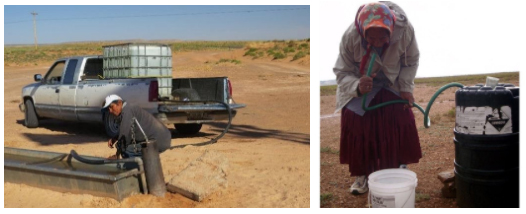WRAP Progress Report 2024
The Water Resources Action Project (WRAP) brings rainwater harvesting systems, environmental education, and cross-cultural exchange to K-12 students in Israel, Palestine, Jordan, and the Navajo Nation.
The Water Resources Action Project (WRAP) brings rainwater harvesting systems, environmental education, and cross-cultural exchange to K-12 students in Israel, Palestine, Jordan, and the Navajo Nation.
WRAP Progress Report 2023
The Water Resources Action Project (WRAP) brings rainwater harvesting systems, environmental education, and cross-cultural exchange to K-12 students in Israel, Palestine, Jordan, and the Navajo Nation.
CLICK HERE TO DOWNLOAD PDF
New Presentation about the Student Multi-Lingual, Environmental Education WRAPapp
CLICK TO LEARN MORE
WRAP Progress Report 2022
The Water Resources Action Project (WRAP) brings rainwater harvesting systems, environmental education, and cross-cultural exchange to K-12 students in Israel, Palestine, Jordan, and the U.S. Arab and Jewish students work on shared environmental issues.
CLICK HERE TO DOWNLOAD PDF
Presentation at GSA Connects 2022 Conference
How Nonprofit Organizations Fill The ‘water Gap’ In Parts Of The Navajo Nation
CLICK HERE TO DOWNLOAD PDF
Malcolm Siegel, Executive Director of WRAP and Leora Siegel, Board Member, presented at the Conference on Environmental Conflict and Cooperation on March 3, 2021 at the University of California, Davis.
Their presentations may be viewed below.
Malcolm Siegel’s presentation CLICK TO VIEW
Leora Siegel’s presentation CLICK TO LEARN MORE
The final report of WRAP’s recently completed grant for the American Arbitration Association-International Centre for Dispute Resolution is now available.
WRAP adapted to challenges of COVID-19 by changing its emphasis from classroom-based activities to virtual projects involving a smaller cadre of motivated students.
Highlights are included in our 2020 Progress Report.
Thousands of Dine’ (Navajo) and Hopi households haul water from distant wells. Lack of water is even more critical during the Covid-19 pandemic, when tribal communities are being impacted at one of the highest rates in the nation. The Water Resources Action Project (WRAP) and The Forgotten People (a grassroots organization based in the Navajo Nation in Arizona) have created a unique partnership to address this pressing need. This project will focus on the emergency water needs of families in several Dine’ and Hopi communities in Arizona.
$4000 will buy:
Two-month supply of hand-sanitizer for ten families of 4 (@$10).

Water Hauler with Truck-mounted, 275 Gallon Water Container
Home Hand-Washing Station
Many water sources are contaminated from mines and natural sources. Because of long travel distances on rough roads to regulated wells, community members often use unregulated wells nearest to their homes. Some families aren’t aware of the dangers. Even when the well water is safe, the containers used to transport it or to store the water at homes have often been contaminated themselves; water is also frequently contaminated when it is transferred from outside barrels into homes.
The Forgotten People have identified these items as the highest priority for Covid-19 prevention. This project will serve as a pilot project that can be expanded to serve other tribal communities facing emergency water needs. We intend to provide as many of these items as possible by mid-July.
In addition to fundraising, cross-cultural student groups will work together to develop longer-term solutions to water issues for the two communities, such as water harvesting and water testing.
Funds raised over $2600 will be used for the following:
Hand sanitizer supply for 1 family for 3 months – $15
Additional hand washing stations – $40
Water testing for one home (Arsenic, E-coli, Uranium)-$50
2- bucket home, water ceramic filter system – $50
275 gallon tank for home water storage – $150
More information about the crisis and how schools in Israel are involved in this WRAP project can be found on the Navajo (Dine)/Hopi/Israel Water Connection project webpage.
In 2019, WRAP expanded its cross-cultural exchange activities between the diverse partner schools within its growing network. Highlights are included in our 2019 Progress Report (link to the report).